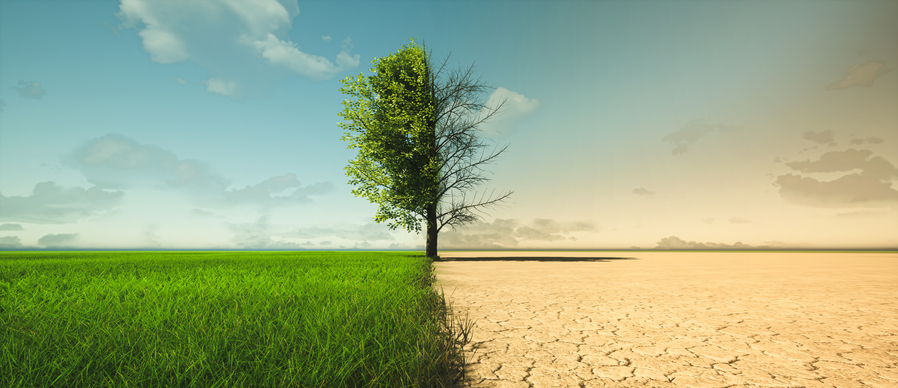How to Keep Your Water Bill Low During This Memphis Drought

It’s been a hot one, that’s for sure. And with portions of Shelby County in Severe Drought territory, these warmer-than-usual temperatures are making us wish for rainfall. We haven’t seen this severe of a drought since 2007 – which was followed by a harsh freeze that then killed more outdoor plants.
The silver lining is that coming out of that stressful time at least gave us details on what to expect and how to better prepare for future issues.
Historical Effects of Drought in the Memphis Area
Without the presence of a typical amount of water, the state of Tennessee feels the impact of drought in increasingly severe ways.
D0: Abnormal Conditions
- There are fewer plants to pollinate
- Honey production goes down
- Water levels in lakes and ponds lowers
D1: Moderate Conditions
- Mosquito presence goes down
- Other insects become abundant
- Leaves fall earlier than usual
- It becomes dustier outdoors
- The chance of fires increases
- Burn bans implement
- Demand for water is high
- Agricultural ponds become dry
- Hay yield on farms is low
- Fish hatchery closes due to trout disease
D2: Severe Conditions
- Active wildfires begin
- Air quality lowers
- Corn is stressed
- Hay becomes imported
- Farmers start selling livestock
- Water quality becomes poor
- Water-dwelling species die
- Stream and creek water levels drop severely
- Requests start for voluntary water conservation
D3: Extreme Conditions
- Wildlife does not have enough water supply
D4: Exceptional Conditions
- Large wildfires are reported
Conserve Water and Protect the Memphis Sand Aquifer
We’re fortunate to have some of the best water, thanks to the sand aquifer pumping water from over 175 wells throughout Shelby County. That means that we’ve got a responsibility to conserve our water, now more than ever. It’s why there are organizations like Protect Our Aquifer and The Wolf River Conservancy helping spread awareness.
The aquifers provide low impurity water that is more than 2,000 years old. But humans have been causing damage to the clay layers protecting the aquifer, and if it continues, it can threaten the quality of water which is already low because of this drought.
Lower Your Water Bill & Conserve with These Tips
We’ve gathered years’ worth of tips and tricks, some of which take hardly any effort at all. Not only does using less water help out during these dry times, but it also helps our ecosystem in the long term. Plus, conserving water saves the energy needed to filter, heat, and pump water, reducing your carbon footprint while keeping your monthly bills smaller.
- Use a bowl in your sink instead of filling the sink up with water for dishes
- Only run dishwashers and washing machines with full loads
- Take a shower instead of a bath, or fill the tub less than you usually would
- Use mulch in your landscaping to help retain water and slow evaporation rates
- Address water leaks right away instead of ignoring them or waiting for them to worsen
- If you use an irrigation system for your lawn, have it inspected and upgraded for efficiency
- Water your lawn once a week instead of daily, and be sure that it’s not when the sun is shining
- Keep a pitcher of water in the refrigerator so that you don’t have to run the tap and wait for cold water
- Compost food waste instead of always putting it down the garbage disposal
- Have your plumbing system inspected annually to ensure that there are no underlying leaks
- Be conscious of how much the toilet is flushed, especially if it’s for tissues or flushing when not actually using the toilet
- Install a stopper onto any outdoor hoses and check to be sure they work properly
- Add water-saving features to shower heads, faucets, and toilets
- Use a bucket of water for washing vehicles, and a broom for cleaning driveways and walkways
- Cover swimming pools and hot tubs to reduce the amount of natural evaporation
- Control the weed growth in your gardens to help avoid competition for nutrients
- Keep plants with similar water needs grouped together outdoors to avoid overwatering plants that don’t need it
- Be sure that sprinkler systems are positioned properly to avoid watering gutters, sidewalks, driveways, etc.
Pick a few tips and try them out to see which ones stick and start forming water-conscious habits today!
 Click to call
Click to call


